Related Research Articles

Akinwande Oluwole Babatunde "Wole" Soyinka is a Nigerian playwright, novelist, poet, and essayist in the English language. He was awarded the 1986 Nobel Prize in Literature for his "wide cultural perspective and... poetic overtones fashioning the drama of existence", the first sub-Saharan African to win the Prize in literature.
Death and the King's Horseman is a play by Wole Soyinka based on a real incident that took place in Nigeria during the colonial era: the horseman of a Yoruba King was prevented from committing ritual suicide by the colonial authorities. In addition to the intervention of the colonial authorities, Soyinka calls the horseman's own conviction toward suicide into question, posing a problem that throws off the community's balance.
Tanure Ojaide is a Nigerian poet and academic. As a writer, he is noted for his unique stylistic vision and for his intense criticism of imperialism, religion, and other issues. He is regarded as a socio-political and an ecocentric poet. He won the 2018 Wole Soyinka Prize for Literature in Africa with his collection Songs of Myself: A Quartet (2017).
Wole Oguntokun was a Nigerian playwright, dramaturge, director and was the artistic director of Theatre Planet Studios and Renegade Theatre as well as a member of the board of Theaturtle, a Canadian theatre company. He was also a theatre administrator and newspaper columnist.
Wole Soyinka Prize for Literature in Africa is a pan-African writing prize awarded biennially to the best literary work produced by an African. It was established by the Lumina Foundation in 2005 in honour of Africa's first Nobel Laureate in Literature, Wole Soyinka, who presents the prize, which is chosen by an international jury of literary figures. Administered by the Lumina Foundation, the prize has been described as "the African equivalent of the Nobel Prize".

Kongi's Harvest is a 1970s Nigerian drama film directed by Ossie Davis. The film was adapted from a screenplay by Wole Soyinka adapted from his 1965 play of the same name. Soyinka, a Nigerian playwright, poet, and the first African to be awarded the Nobel Prize in Literature in 1986, also starred in the leading role as the dictator of an African nation.

Irreligion in Africa, encompassing also atheism in Africa as well as agnosticism, secular humanism and general secularism, has been estimated at over tens of millions in various polls. While the predominant religions in Africa are Islam and Christianity, many groups and individuals still practice their traditional beliefs. Despite this the irreligious population is notable, especially in South Africa where 15.1% of the population describe themselves as irreligious and in Botswana, where 20% of the population describes themselves as non-religious.
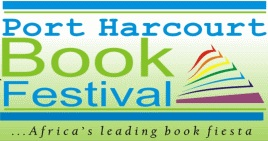
The Port Harcourt Book Festival is an annual literary event in Port Harcourt, Rivers State, Nigeria, organised by the Rainbow Book Club and endorsed by the Rivers State Government since 2008. The Garden City Literary Festival, which is currently known as the Port Harcourt Book Festival was founded by Governor Amaechi of Rivers State, Hundreds of literary fans flock to the Garden City every year for this six-day event, which includes a book fair, writers' workshops, and a variety of other activities. In the past the Festival has been attended by recognized authors and has hosted a number of celebrities.
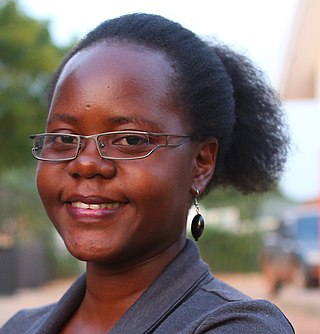
Ber Anena born and previously published as Harriet Anena is a Ugandan writer and performer, whose writing includes poetry, nonfiction and fiction. She is the author of a collection of poems, A Nation In Labour, published in 2015, won the 2018 Wole Soyinka Prize for Literature in Africa. The Economist described her poetry performance as "an arresting evocation of love and war".
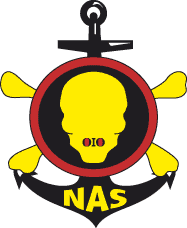
The National Association of Seadogs, popularly known as the Pyrates Confraternity, is a confraternity organization in Nigeria that is nominally University-based. The group was founded by Prof. Wole Soyinka in 1952 by the "Original Seven" to support human rights and social justice in Nigeria.
Ripples Nigeria is a Nigerian online newspaper based in Lagos. It was launched in 2015. It is an independent, pro-investigation multi-media online news platform focused primarily on politics, policy and economy.

Laolu Akande is a Nigerian journalist, editor, scholar and lecturer. He is currently the Editor in Chief of Empowered Newswire and the Host of the popular Inside Sources with Laolu Akande on Channels TV, Nigeria. He was the spokesperson of the vice president of Nigeria 2015-'23, Prof. Yemi Osinbajo, SAN. Before he was named Vice Presidential Spokesperson, Akande was reporting for Empowered Newswire, a US-based news agency which he had founded in New York. He was also a former North America Bureau Chief for The Guardian in New York City, United States.

Chronicles from the Land of the Happiest People on Earth is a 2021 novel written by Nigerian playwright and novelist Wole Soyinka. It was released on 28 September 2021 by Bookcraft Africa.
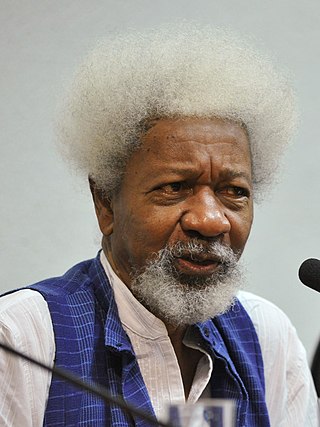
The 1986 Nobel Prize in Literature was awarded to the Nigerian writer Wole Soyinka "who in a wide cultural perspective and with poetic overtones fashions the drama of existence." He is the first African recipient of the prize.
Elesin Oba, The King's Horseman is a 2022 Yoruba-language Nigerian historical drama film directed by Biyi Bandele and distributed by Netflix, based on Wole Soyinka'sDeath and the King's Horseman, a stage play he wrote while in Cambridge, where he was a fellow at Churchill College during his political exile from Nigeria, and it is based on a real incident that took place in Yorubaland during British Colonial rule. The film stars Odunlade Adekola as the titular character, with Shaffy Bello, Brymo, Deyemi Okanlawon, Omowunmi Dada, Jide Kosoko, Langley Kirkwood, Joke Silva amongst others in supporting roles.
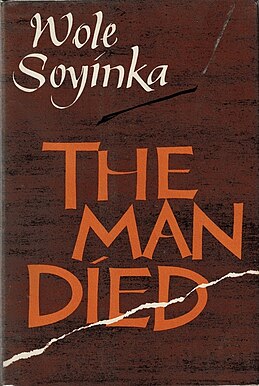
The Man Died: Prison Notes is a 1972 non-fiction book by Wole Soyinka that explores Soyinka's experiences in prison during the Nigerian Civil War. In 1984, a Nigerian court banned the book. In 2011, The Guardian included The Man Died on their list so of the 100 greatest non-fiction books.

Of Africa is a book written by Wole Soyinka, a Nigerian playwright, novelist, poet, and essayist who is also the author of The Bacchae of Euripides (1969), Season of Anomy amongst others. The book was centered on Africa's culture, religion, history, imagination, and identity, examining how its past intertwines with that of others. He emphasizes Africa's intrinsic values, including its humanity, self-worth, and methods of environmental stewardship, encompassing both physical and intangible aspects. Despite acknowledging Africa's daunting challenges, Soyinka rejects defeatism, eloquently analyzing issues from historical significance to the rise of theocracy. He confronts complex topics like racial biases, inter-ethnic conflicts, and the impact of colonial-imposed borders on nationhood. Soyinka's examination reimagines Africa's place in the reader's mind, charting a path toward a future defined by peace and self-empowerment.
Alapata Apata, a satirical play by Wole Soyinka mocking Nigerian politics through the story of Alaba, a retired butcher. As Alaba adjusts to his newfound leisure, the play exposes the absurdities of power dynamics and political manipulation in Nigeria. With humor and wit, Soyinka critiques corruption and hypocrisy, offering a sharp commentary on governance while entertaining readers with its humorous portrayal of characters and situations.

King Baabu is a play by Wole Soyinka amongst his others plays including The Lion and the Jewel,A Dance of the Forests, and The Strong Breed. Wole Soyinka was the first African to win the Nobel Prize award in 1986. King Baabu is a satirical play that mirrors the rule of General Abacha in Nigeria through absurdity and humor. It follows the transformation of General Basha Bash into King Baabu, portraying his reign with a cast of characters speaking in a childish language. Through comedy and storytelling, the play critiques power, corruption, and the cult of personality, leaving a lasting impression as a poignant commentary on political absurdity.
Ebrohimie Road: A Museum of Memory is a documentary film written, produced, and directed by Kola Tubosun, and shot by Tunde Kelani, about the eponymous location at the University of Ibadan where Nigerian writer/playwright and Nobel Laureate Wole Soyinka lived and worked between 1967 and 1972. It was from there that Soyinka was arrested in 1967 after visiting the breakaway Biafra that was engaged in a civil war with Nigeria, and it was there to which he returned in 1969 after his release, before leaving for a voluntary exile a few years later. The film premiered in Nigeria in July 2024 as part of activities to mark Soyinka's 90th birthday, and has continued to screen in venues in the United States, United Kingdom, and elsewhere.
References
- ↑ "Jero metamorphosis".
- ↑ "Jero metamorphosis".
- ↑ "Jero's metamorphosis and a cleric's hunger for power". The Guardian Nigeria News - Nigeria and World News. 2018-07-08. Retrieved 2024-05-12.
- ↑ "Jero's Metamorphosis ... Chronicles of a sick church". The Guardian Nigeria News - Nigeria and World News. 2016-08-07. Retrieved 2024-05-12.